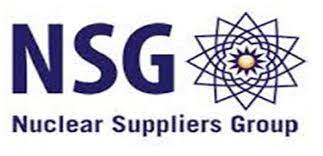Indian nuclear program aimed at getting big power status: Webinar

Islamabad: India’s quest for Nuclear Suppliers Group’s (NSG) membership is the continuation of its desire for big power status for which it has been aided by the United States and other Western countries, believe nuclear experts.
They were discussing “South Asian Nuclear History” at a webinar hosted by Strategic Vision Institute, according to a press release issued here on Tuesday.
Dr. Adil Sultan, chair of Air University’s Department of Aerospace Sciences and Strategic Studies, said that India through NSG membership wants to get the prestige of being equated with other nuclear weapon states.
He opined that if India succeeds in getting NSG membership it would enjoy more privileges than the nuclear weapon states, which had signed the non-proliferation treaty. They are obligated to work for disarmament and if India enters NSG, it wouldn’t have any such obligation, the contended.
Dr. Sultan argued that India is already enjoying access to high end nuclear technologies because of its deal with the US and the 2008 waiver by NSG. Therefore, in his view the benefits of a future NSG for India would mostly be political in nature as it would then be seen as a “responsible country” with a “legitimate nuclear weapons state” status.
Pakistan, he maintained, if not given NSG membership alongside with India, would then technically be the only country possessing nuclear technology that would be ineligible for nuclear trade with NSG countries. Israel, the other non-NPT country, he said, already enjoys a special status and could get whatever it wants.
Dr. Rabia Akhtar, director School of Integrated Social Sciences, University of Lahore, while talking about Pakistan’s program underscored that both former prime ministers Benazir Bhutto and Nawaz Sharif refused to give in to any pressure on Pakistan’s nuclear weapons program.
The non-proliferation policies of successive US administrations, she noted, were designed to create an imbalance for preventing Pakistan from going nuclear.
Dr. Zafar Khan, professor of International Relations at Balochistan University of Information Technology, Engineering and Management Sciences, said security remains a dominant factor from Pakistan’s point of view. South Asian nuclear history, he said, is somehow identical to cold-war nuclear history and rivalry between the US and Soviet Union.
Dr. Tughrul Yamin Malik, Associate Dean at National University of Science and Technology’s Centre for International Peace & Stability, deliberated on current trends in global politics of non-proliferation from South Asian perspective.
President SVI Dr. Zafar Iqbal Cheema, while opening the discussion, called for a closer study of Indian nuclear diplomacy that kept it shielded from the international safeguards. Pakistan’s perspective, he said, is based on the geostrategic and security dimension.
After India’s 1974 nuclear explosion, he recalled, Pakistan was compelled to acquire nuclear weapons capability because of existential threats from India.





